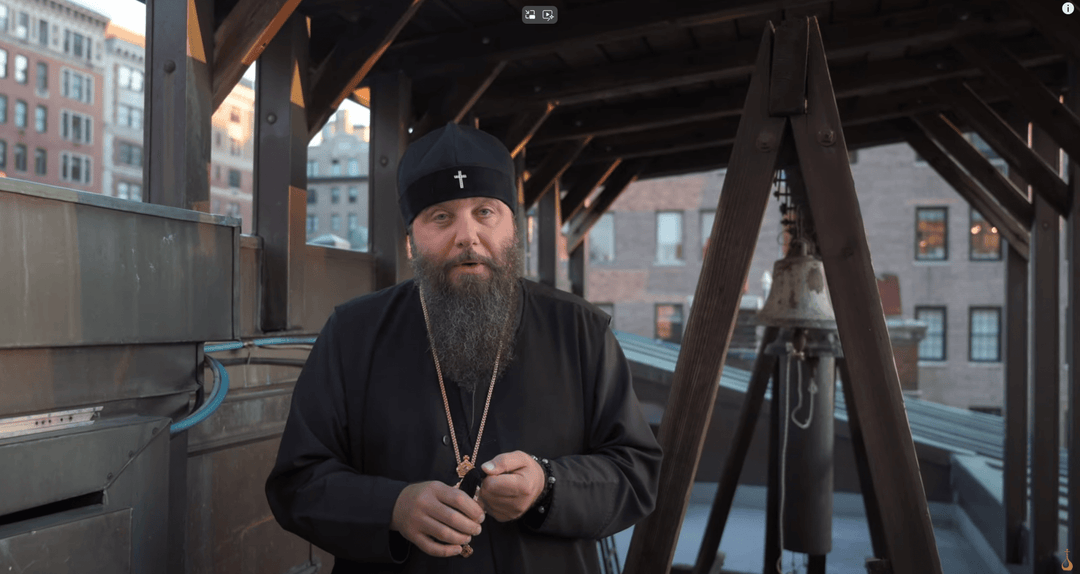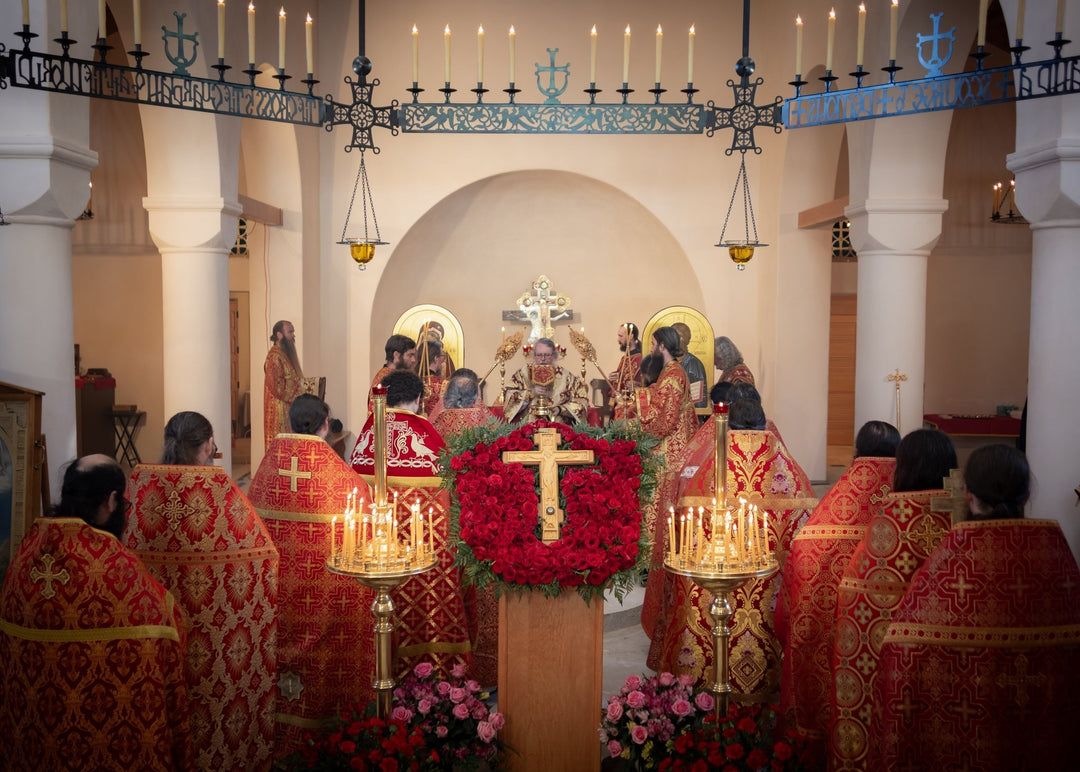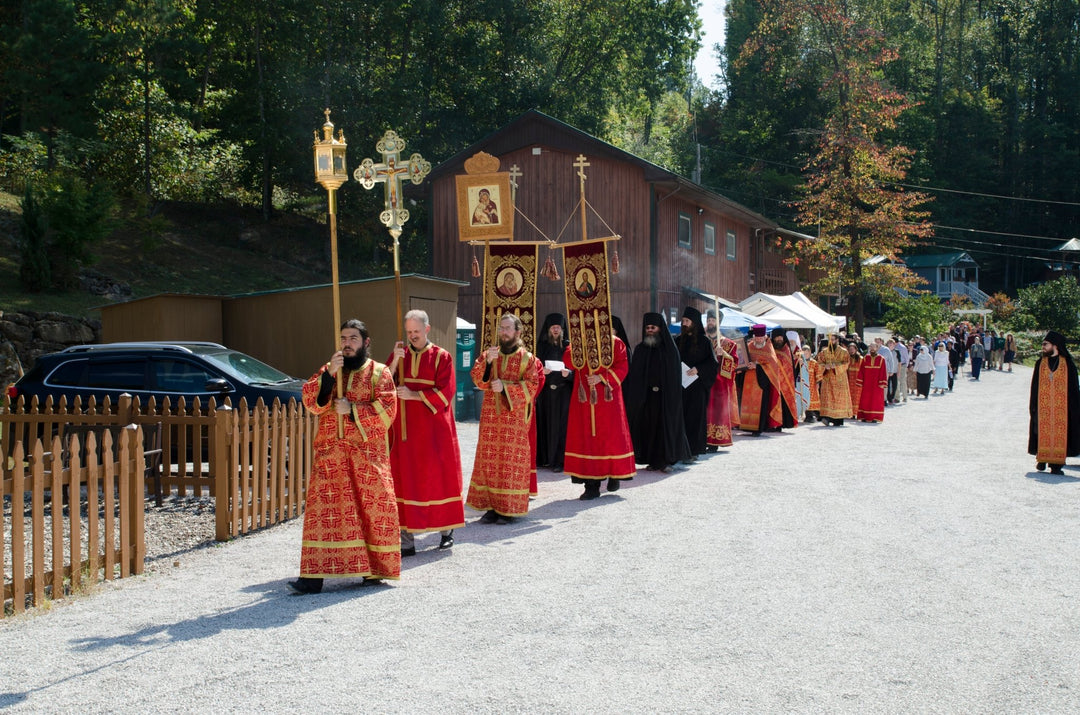Sermons & Homilies
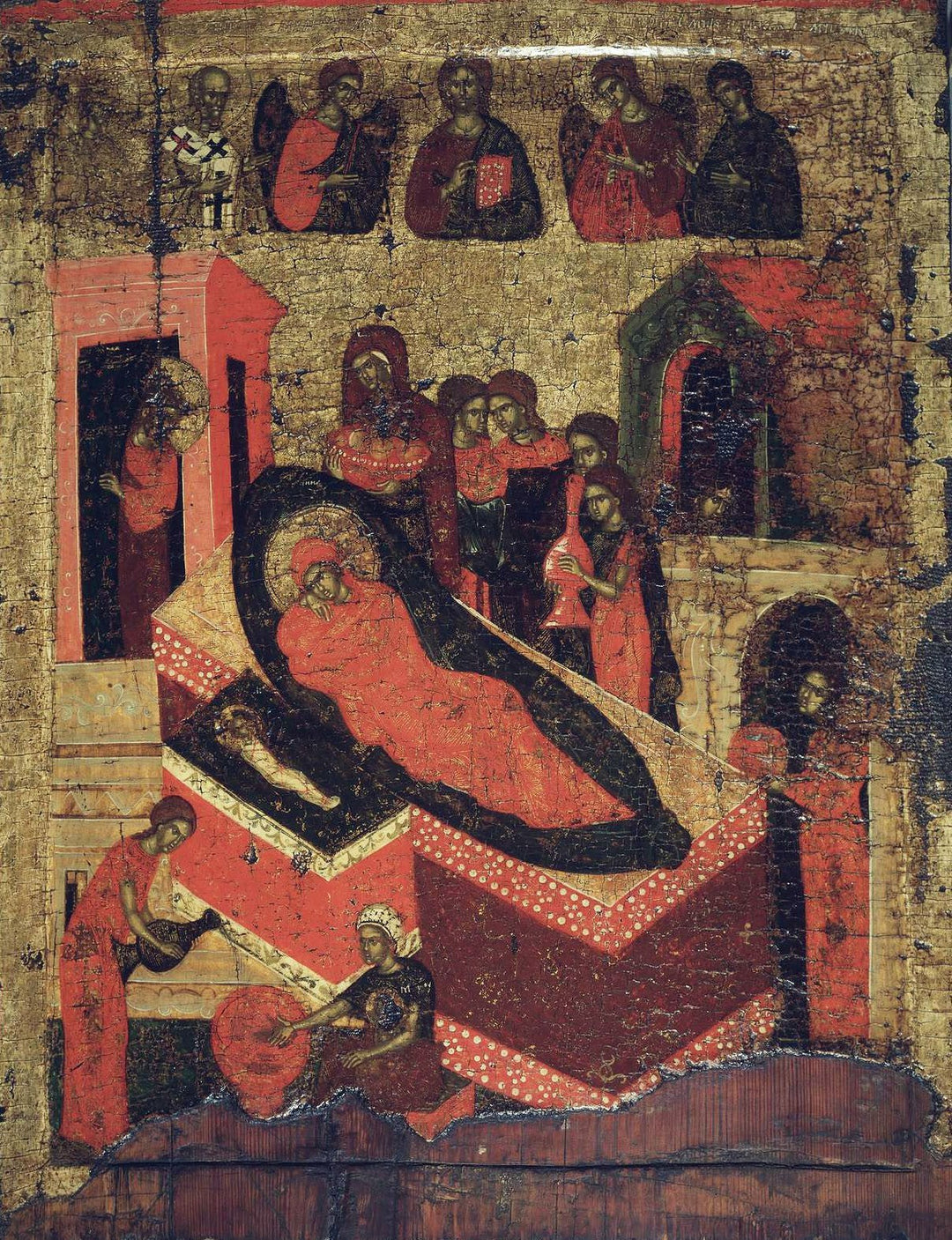
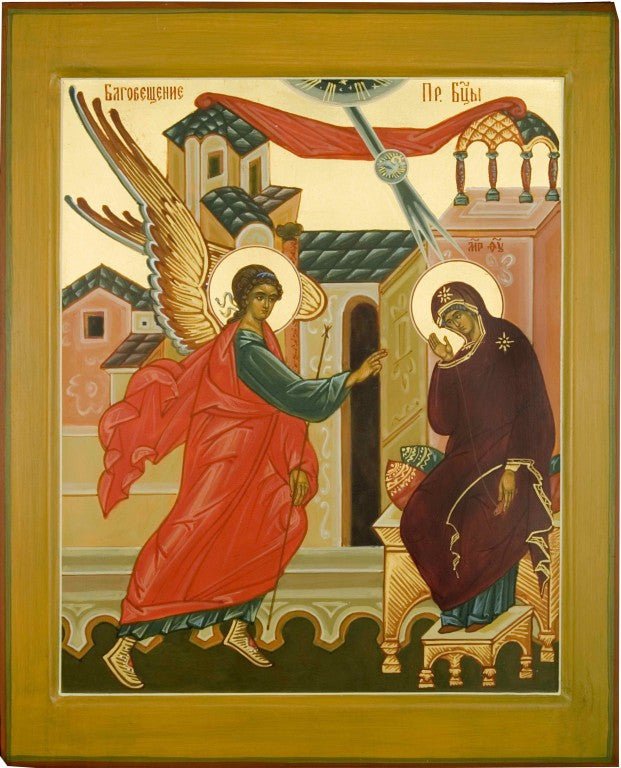
“The Mystery from the ages is revealed today… God becomes man, so that He might make Adam a god.”
My brothers and sisters, these words from the Praises of the Forefeast express a great and holy truth. Even more, these words express the greatest truth of our lives. It truly is “the Mystery from the ages.” It is not a fairy tale. Nor is it simply a dull formula dredged out of some lifeless textbook of theology. It is reality, though a reality far beyond the wildest dreams even of St. Peter when he said to the Lord: “to whom shall we go? Thou hast the words of eternal life.” When holy Chief of the Apostles spoke this, he did not yet have but the barest inkling of the life that the Son of God came to us to bring. As St. Paul later wrote: “eye hath not seen, nor ear heard, neither have entered into the heart of man, the things which God hath prepared for them that love him.” And even more, in the words of the Apostle John the Theologian: “Beloved, now are we the sons of God, and it doth not yet appear what we shall be: but we know that, when he shall appear, we shall be like him; for we shall see him as he is.”
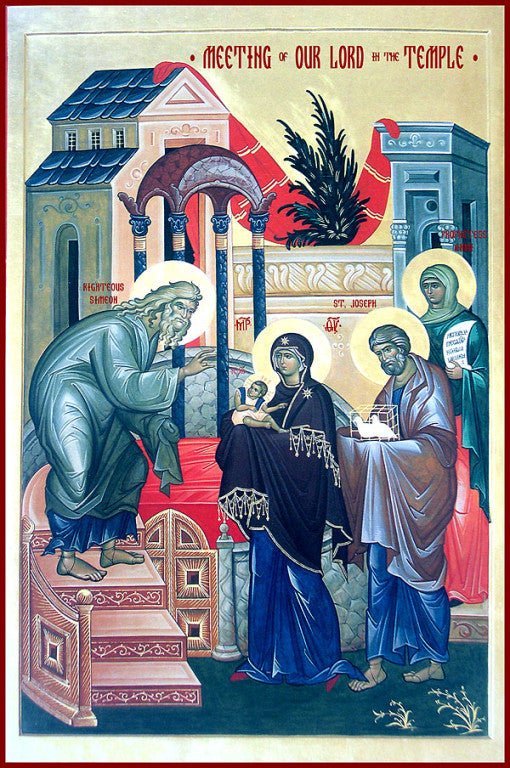
Today’s feast has many meanings, many aspects, and even many names. It is sometimes called the Meeting of the Lord, sometimes the Purification of the Virgin, sometimes the Presentation of Christ in the Temple, and finally, especially in the West, it is known as Candlemas – the Feast of the Light that shown upon St. Symeon and which we remember by blessing candles on this day. This multiplicity of names and meanings is an indication that today’s feast is situated at a crossroads: between the Law and the Prophets, between the infancy and the adulthood of Christ, between the Old and the New Covenant. Today, for the first time in history, God Himself enters bodily into the Temple which was made for Him, carried in the arms of Her who is Herself the true Holy of Holies, the Tabernacle more spacious than the heavens. He enters not in a cloud of glory, but in humble poverty, in meekness fulfilling the Law which He Himself gave. And She enters to be purified, She who alone is spotless and undefiled. Here the Righteous Symeon prophecies over Him who is the fulfillment of all the Prophets.
Today we celebrate the feast of the Kursk Root Icon of the Mother of God of the Sign. This special, miraculous and wonder-working icon is the protectress of the Russian Orthodox Church Abroad. She intercedes especially to the Lord for all Orthodox in this land and in the diaspera. She is abundant grace to the faithful, healing to the infirm, a light to monastics and a beacon to all those who truly seek Her Son, Our Lord Jesus Christ.
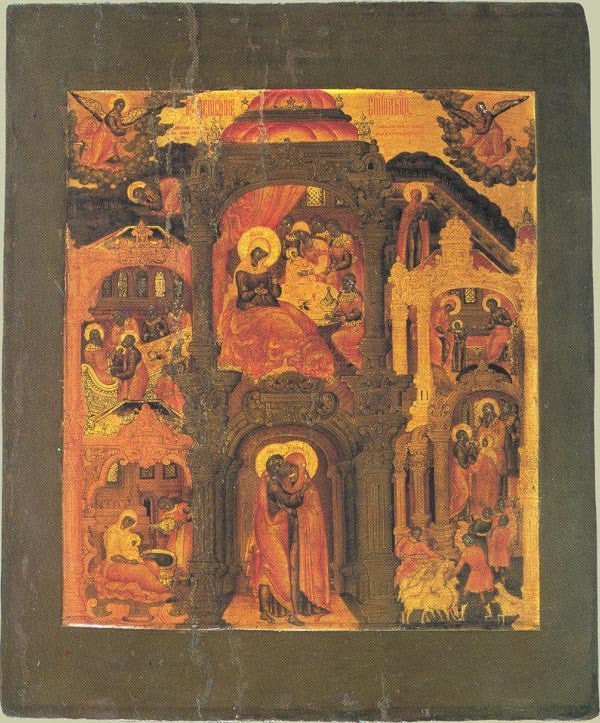
There is no great event which is not proceeded with great longing and expectation. This Great Feast of the Nativity of the Mother of God is no exception. This first of Feasts, celebrated on the eighth day of the New Church Year, was certainly preceded by great longing and expectation. First, we have the longing of the blessed parents of the Blessed Ever-Virgin, Joachim and Anna. Finding themselves childless even in old age and thus ashamed in front of Jewish society, they pleaded with God to relieve them of the curse of childlessness, a shame which even caused Joachim to be rejected from his service at the Temple and which sent him into the wilderness to plead with the Lord. Joachim and Anna did not lose their faith or cease their prayers even when it seemed that all the law of nature was set against them because of their age. Rather, they lived and prayed with longing and the expectation of deliverance. Secondly, we have the longing and travail of the human race itself, which was until the dawn of Grace laboring under the yoke of the old law, the condemnation of the sin of our first ancestors, and the corruption of death. The people of the world had descended to such a state of moral degradation that it hardly seemed possible to redeem mankind. Indeed, it would take the very entry of God Himself, incarnate, into human history in order to save mankind inasmuch as the law was powerless to save it. Mankind, like Anna, was barren, not bringing forth fruit. The whole world was in longing, and the righteous, such as Joachim and Anna and Symeon the God-Receiver, were filled with expectation.




